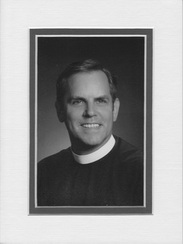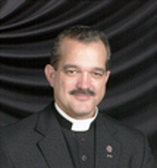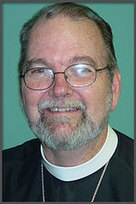 Daily Blog – Day 332, Micah 3, Psalm 119:145-176; Matthew 25
Gift giving says a great deal about the giver. But it can also say something quite significant about the receiver!
As we now find ourselves in the early and often frantic stages of Christmas preparation with gift purchasing, wrapping and delivery, we realize that some folks do make an effort to find that “perfect” gift. Such gifts may help to make life more comfortable, enjoyable, or meaningful. Have you ever thought that that is exactly what God had been doing throughout the ages? The witnesses of the prophets, including Micah, reveal a history where God had provided much for God’s people. But the people instead of graciously receiving and seeing God’s grace as improvement and blessing, ignored the giver and strove to create their own life’s meaning and purpose. What more could we need or want than to be loved, protected, fed and clothed, and free of fear? All of God’s gifts provide as such and much more when we receive and utilize them, and in turn give to others as we have received.
Matthew 25 sharply reminds us of the importance of making use of the gifts God bestows upon us. As a result of living by the New Testament’s “Great Commandment” to love God with all our heart, mind and soul, and to love our neighbor as ourselves, we see our human connectedness as an opportunity to give and receive, to share and find fulfillment. The gifts we are graced to receive are not for selfish gain but are purposed to transform us and enable us to give and share of God’s endless bounty and richness. That is what much of the Old Testament people missed out on as a result of their hardened and selfish hearts. Unfortunately, such attitudes and behaviors have continued throughout time and are still prevalent today. How are we giving recognition to God as the source of our gifts and offering our thanks? How are our lives demonstrating gratitude to God and joy for the love we have?
I am reminded of the popular 1906 short story classic, The Gift of the Magi by O. Henry, who speaks of a young married couple and how they deal with the challenge of buying a Christmas gift secretly for each other with very little money. Here is the wisdom of the magi who visited the Christ child. They reveal a love that is willing to sacrifice, to be patient, to endure, and to continue to support and guide one another. It is all about selfless giving. But it is equally important as how it is gracefully received and allowed to transform us.
May the gift of Christ’s birth in our lives for which we continue to prepare our hearts, lives, and homes during this Advent Season bless us in our waiting and in our own giving and receiving!
Blessed Advent,
Father William+
__________________________________
The Very Rev. Dr. William L. Stomski,
Chaplain and Sacred Studies Educator, Saint Joseph’s Episcopal School, Boynton Beach
Dean of the Diocesan School for Christian Studies
 The Bible Challenge
Diocese of Southeast Florida
Micah 2; Psalm 119:113-144; Matthew 24
A portion of our readings for day 331 reminds me of a painting that was popular a number of years ago. Perhaps you recall it. It depicted persons in a contemporary city dwelling. Some were floating up, as if being pulled heavenward, while others remained in place. Most amusing to me were the two folks in a convertible car driving down the street. I’m glad the one seemingly taken to Heaven was the passenger and not the driver! Of course the artist drew this imagery from Matthew 24:40 and following. Micah’s reading also reminds us of the Parousia (end time), or at least a cleansing of the sinfully evil.
As we now begin the liturgical season of Advent, we will read from the lectionary, or hear read and preached to us, principles concerning the end time. Purposefully the Church uses this four week period to focus our attention on the second coming of Christ, as well as, our celebration of the Incarnation of God’s Logos or Word, or Christmas.
Some denominations use these readings from Micah and Matthew to infuse fear in the hearts of their adherents. Their intention is to control their parishioners’ understanding of faith, and thus save their souls from Hell. Others have led people to mountain tops or other remote areas to await this final event of judgment. Oops…
What are your thoughts and feelings about the end times? Do you believe that Jesus will return again ushering in the “Close of the age”? Does this anticipation delight or scare you?
In our worship during Advent, we continue to reflect upon Christ’s second coming in Scripture. We weekly profess it in our Creeds, and we hear it said in our Eucharistic services. My hope is that you believe but not in fear. Today’s Psalm reflects the heart of the Psalmist who desires to fulfill the commandments not for fear of retribution but for Love. He fervently seeks in the law Sophia/Wisdom. Living by the requirements of God’s law the Psalmist pursues an intimate and passionate union with the Divine.
With the same yearning of the Psalmist I anticipate Christ’s second coming. While I wait actively for that intimate consummation, I strive to receive Jesus each day. He comes to me through His bride, the Church. He feeds to me Himself in the Sacraments of Bread and Wine, the hearing of the Word, and the fellowship of the Body. He comes to me in the innocent eyes of children, in the longing hearts of the poor and the lonely, through the aged and those who are infirm, and in the candidness of my family. He comes to me in these and so many other ways. But, I am not always watchful.
How is Jesus coming to you?
Jesus, our Christ, continually comes… We just have to have the eyes to see, the ears to hear… and the willing hearts to receive Him. Come, Lord Jesus, come!
A Blessed Advent to you all,
Fr. Bernie+
St. Martin, Pompano Beach
 Micah 1, Psalm 119:73-112, Matthew 23
The Rule of St. Benedict (Rule 48:1) consists of a three-legged stool; work, study and prayer. Study for the Christian, consists of feeding on the constant nutirition of God’s World, the Holy Scriptures. Lectio Divinia has been a traditional way of reading scripture for monks for thousands of years. It is meant to be a careful reading of Scripture, nourishing our life of faith without demanding scholarly or intellectual curiosity. Lectio Divinia is primarily drawing upon the hearts desire to thirst and drink from the living water provided by the Word of God. Today's readings remind us of the importance of constant spiritual nutrition, reading and meditating on God's Holy Word. "Let your compassion come to me that I may live, for your law is my delight." (Psalm 119:77)
Some time ago I was brought a small woven basket of lettuce, arugula (rocket), rosemary, basil, thyme and chilies, harvested from a church parishioners personal garden. The organic produce hand-picked from their homegrown patch outside their backdoor was mouthwatering and healthy; full of vitamins, nutrients and fiber. It also served as a reminder; frozen fruits and vegetables, might still be healthy, but nothing can take the place of those handpicked harvests, straight off the vine.
The same is with God’s Word; handpicked Scriptures, new every morning, keep our faith healthy and alive. Hearing a good sermon can be uplifting, listening to Christian radio and fellowship with believers has its benefits; but nothing can replace fresh, organic, God-given Scriptures. "Oh, how I love your law! I meditate on it all day long." (Psalm 119:97) As today is the first Monday in Advent, we are given a new season in which to intentionally practice our personal spiritual disciplines.
We are God’s living word in society today and are to live our lives above reproach, constantly gaining nourishment from God's Word, setting us free from the entanglement of the world and allowing us to be role models for modern day society. Jesus' warning to the crowd and to the disciples to put into practice (Matthew 23:3) their belief is a warning to us as well. Let us take seriously our responsibility to intentionally put into practice the traditions of our Christianity, meditating on the Word and living in close relationship with the Great I Am.
 A lot of anger has been expressed in the stories from Scripture over the last few days. And it reaches its zenith today. Jonah is angry that God is not pursuing the destruction of Nineveh for its wickedness, and goes into a sulk. Jesus tells the Parable of the Wedding Feast in which, when the guests decline his invitation, the king is so furious that he sends his army to wreak havoc on them. What do these tales tell us about how we act…and about how God acts?
Truly, we all get angry about things over which we have no control: traffic jams, sudden illness, global war, people who cut in line at the grocery store. And there are times when our anger is seemingly justified: abuse, racism, acts of cruelty, wasteful behavior.
In Matthew’s parable today, the King changes his mind from gracious host to violent enforcer because of the actions of others. In the reading from Jonah, the prophet moves from being the champion of God’s justice to being angry with God because of a divine change in behavior. Jonah’s indignation is the result choosing to separate himself from God’s ultimate plan and God’s nature of being gracious and compassionate (Jnh 4:2). Unlike Abraham, who bargains with God when God wants to destroy Sodom, Jonah remains resolute in his hope that God will vanquish Nineveh.
One of the learnings here is that God is God, and we are not. If God chooses to forgive, to pardon, to restore, who are we to become upset that the divine will and ours are not in synch? As we learned while reading the Book of Job, the ways of God are mysterious and sometimes unknowable. But in the last two verses of Chapter 4, we see God’s true heart of love and care and compassion:
God said, “What’s this? How is it that you can change your feelings from pleasure to anger overnight about a mere shade tree that you did nothing to get? You neither planted nor watered it. It grew up one night and died the next night. So, why can’t I likewise change what I feel about Nineveh from anger to pleasure, this big city of more than 120,000 childlike people who don’t yet know right from wrong, to say nothing of all the innocent animals?” (The Message)
Are we willing to see things differently? Are we willing re-think our actions? We all have DVR’s. We press the “PAUSE” button when we want to take a break and re-wind and see part of a program again, perhaps from a new perspective. This is sometimes what it takes to access our behavior and our choices, and thereby move closer to God’s will.
Doug McCaleb
Trinity Cathedral Miami
 Spencer Potter “In art intentions are not sufficient and, as we say in Spanish, love must be proved by deeds and not by reasons. What one does is what counts and not what one had the intention of doing.” ― Pablo Picasso This quote from Picasso illustrates the importance of action. In art and love, intentions and reasons need to be accompanied by deeds and actions. The feeling of love is proven by the actions of love. One can tell their lover that they are loved, but if one’s behavior is not caring and tender, the love is not felt. In the same way, if actions towards a companion are generous and lavish, yet there is no intention or feeling, the love seems hollow. I believe that God loves us. I believe that more than anything God wants us to love God back. This returning of God's love takes both intention and action. It takes feelings, and loving behavior. Said in a theological way, loving God takes both faith and good deeds. Oftentimes the Church and the Bible talk about the invitation to have faith in God. Oftentimes the Church and the Bible talk about the calling to feel love for God. The latter part of this passage from Matthew 21 talks about the need for feelings and words to be backed up with actions. Matt 21:18-22 The fig tree can be a fig tree but it needs to bear the fruit of a fig tree. It needs to take the action of giving a fig. Matt 21:23-27 The Chief priests can be teachers but they need to teach. They need to be leaders and answer the question about where John the Baptist's authority came from. Matt 21:28-32 The son who said he was going to work, needs to actually work. Matt 21: 33-35 The tenants that run the vineyard need to actually pay rent. It is not enough to say one thing. We need to actually do that one thing. I believe that this passage encourages us not only to feel love for God, but also encourages us to act on this love. I believe that this passage encourages us to not only have faith, but to act on that faith and do the caring and loving things that Christians do for God. Today may be the day to volunteer at the soup kitchen you were thinking about or today may be the day to go visit that shut-in church member. I believe that God wants us to love God back. Keep Reading! The Rev. Spencer B. Potter St. Andrew's Episcopal Church 14260 Old Cutler Road Palmetto Bay, Florida 33158 Office: (305) 238-2161 ext. 111 Cell: (305) 586-1086
www.standrewsmiami.org
 Jonah 2; Psalm 118; Matthew 20
“Give thanks to the Lord. For He is good; His mercy endures forever.”
Happy Thanksgiving!
Today’s reading offers some interesting perspectives on ‘thanksgiving.’ The Psalmist sums it up for us; “Give thanks to the Lord for He is Good; His mercy endures forever.” No doubt on this day many of us will be offering thanks for the many blessings of our lives. Some have much and some of those may attribute those blessings to God’s favor. [Remember the rich young man in yesterday’s readings?] Those with the least will also be praying, perhaps more than many of us, in thanksgiving for what they have.
Today’s readings, however, draw us much deeper than our thanks for worldly possessions or fortunate living conditions. Today we have the Story of Jonah and the Parable of “the workers in the vineyard,” or as Daniel Harrington suggests in his commentary on Matthew, “The Parable of the Good Employer.” Both are stories of God’s Justice and Mercy. “Give thanks to the Lord for He is good; His mercy endures forever.”
In Jonah’s case he has been directed by God to a task, a task he doesn’t believe in. Jonah is not simply weighing the possibilities of his own success over the potential of his own failure but rather is having an internal conflict with the nature of God. “Why,” Jonah asks himself, “should God send a prophet to Nineveh to ‘Cry out against it?’ Why should God’s Justice be delayed? Certainly God knows the sinfulness of the city of Nineveh and how it has mistreated Israel! They are sinners and sinners deserve God’s Justice and wrath – not God’s mercy!”
So Jonah takes matters into his own hands and sets out away from God’s Presence in the opposite direction from Nineveh – “going down” to Joppa to set sail for Tarshish – a land far away. As Jonah moves away from God’s Presence or service, he is “Going down” spiritually. But now Jonah finds himself in a predicament! He has forgotten the words of another Psalmist; “Where can I go from your spirit and where can I flee from your presence?” [Psalm 139:7]. Jonah is not able to flee from God’s Presence and now his internal struggle regarding God’s Justice toward Nineveh has turned on himself. Disobeying God’s command calls for God’s justice and wrath to be invoked against Jonah and he readily recognizes the justice of the storm against him and the poor sailors. Accepting God’s Justice he tells the sailors to throw him into the sea.
So, as we ended yesterday’s reading of Jonah, he has “justly” been thrown into the sea for his disobedience to God. But today from the deep recesses of the belly of the fish in the blackened ocean depths, Jonah prays. Chapter 2 of Jonah is his prayer of Thanksgiving. God’s Mercy has been granted to the ship’s crew and especially to Jonah. Saving sinners trumps God’s justice. “Give Thanks to the Lord for he is Good; His mercy endures forever.”
We see this same theme played out in the Parable of the Good Employer in Matthew’s Gospel. Those who come to the working field later get the same pay as those who arrived earlier. When the master is chided by those who worked longer he says, “Friend, I did you no injustice.” The master reserves the right to do with his own as he wishes. This parable is similar to Jonah in that it would be the Jewish component in Matthew’s Community [assuming the Jonah role] asking if there was not to be special consideration of those Jewish Christians over these new gentile converts coming to the faith in the latter days.
Often, we attempt like Jonah and the early arriving workers, to determine God’s balance of Justice and mercy. What must be clear, is that God handles these decision without our help or influence as evidenced in these two stories. Most important on this Thanksgiving Day is the mercy God shows to each and every one of us! No matter how late the hour, God is present to hear our prayers for God’s mercy; whether it be after decades of doing evil as in the case of Nineveh, or arriving in the vineyard at the eleventh hour.
“Give thanks to the Lord. For He is good; His mercy endures forever.”
Happy Thanksgiving!
Tom Bruttell +
Archdeacon, Diocese of Southeast Florida
 Wednesday,
November 27, 2013 or Day 325
Jonah 1, Psalm 117, Matthew 19
In the study of Holy Scripture it can be very enlightening to study different translations and particularly so when it comes to the Hebrew Scripture (aka Old Testament). The Tanakh is known to be a translation of Hebrew Scripture “unsurpassed in accuracy and clarity”. It is an original translation of the Hebrew Bible based on the Masoretic – the traditional Hebrew – text. In The Episcopal Church the New Revised Standard Version (NRSV) is the translation of the Bible we use. As we hear the story of Jonah trying to flee from doing God’s will there’s a slight difference in translation between these two versions of the Bible that I find enlightening.
At the end of verse 3 in Chapter 1 of Jonah the NRSV says the reason for Jonah
getting on that get-away ship to Tarshish was to get away from the presence of the Lord. The Tanakh translates this same phrase as Jonah trying to get away from the serviceof [the Lord]. Well that got me to wondering. The two translations may not be that different after all. I wonder if any of us knew we were really in the presence of our Lord – I mean truly REALIZED it, if it might not be virtually impossible for us NOT to serve our Creator God. When any of us know we are to do the right thing… to speak the truth in love, to turn down money from dishonest sources, to give up unhealthy
habits… we too might try to hide from the presence of God… from serving the
Holy One. But there is no place we can go where God is not. If we try and run,
try to hide, eventually, one way or another, we’ll be in the belly of a great
fish. Stuck with no way to get out of the fix we’ve gotten ourselves into
thinking we know better than God. And eventually, one way or another, we’ll
have the divine privilege, to turn to that same God no matter how hard that
might be. And if we do choose to turn, to repent, to finally listen to Wisdom,
we find God still there waiting… ready to guide us once more. And
then, we can rejoice and proclaim with the psalmist, Praise
the Lord, all you nations… the faithfulness of the Lord endures forever. Praise
the Lord.
And Jesus tells us, once again, “You want to have eternal life? Give me all of you.
Know that you are always in my presence. Be my light. Love God. Love your
neighbor as yourself. Be willing to be last and you will be first. Don’t run
from serving me. Don’t think I’m not always with you anyway. Trust me. Say Yes
to my way, my truth, my life in you and you in me. I will always be here. I will
always love you. I will wait as long as it takes.”
Wendy Tobias
St. Joseph’s, Boynton Beach
Obadiah, Psalm 116, Matthew 18
A “Minor Prophet.” I’ve always been intrigued by ‘minor’ prophets. I wonder what made them so minor? Did they not have much to say? Were they not quite as wordy as a Jeremiah or an Isaiah? Did they not have as popular a story as Elijah or Elisha?
After reading Obadiah, perhaps he is a minor prophet because we don’t really want to deal with this kind of prophesy. After all, it is pretty straightforward. Edom wronged Judah by assisting their enemies in the ransacking of Jerusalem. In return, Obadiah prophesies that the Edomites will be destroyed.
The problem, of course, is that this didn’t happen. The Edomites kept right on living. In fact, it is believed that King Herod, who oversaw Jesus’ death on the cross was an Edomite. To make things even more confusing, it was the Edomites who were among the defenders of Jerusalem during the Roman War of 66-70, when the Temple was destroyed a second time.
So what are we to make of Obadiah’s prophesy and these lost people the Edomites? Who assisted in Judeah’s destruction, it’s rebuilding, the death of Jesus and the final protection of the Temple against Roman onslaught?
Perhaps we can find some answers in Matthew? “The Peter came and said to him, ‘Lord, if another member of church sins against me, how often should I forgive? As many as seven times?’ Jesus said to him, ‘Not seven times, but I tell you, seventy-seven times.’ “
Is it possible that God’s “vengeance” as promised in Obadiah and in other parts of scripture IS reconciliation? That the most surprising and terrifying thing for us is not eternal punishment but in fact to be reconciled? To make amends with those we have sworn of?
Indeed this is not just possible, it is Christ’s promise to us. That we are forever redeemed, forever reconciled. Not just to Christ but to each other as well.
The Book of Obadiah promises that ‘the Kingdom shall be the Lord’s’. Not Edoms, or Judah’s, or America’s, or Israel’s. The Kingdom Belongs to God. And we are all welcome into the Kingdom – together.
Rev. Grey Maggiano
Trinity Cathedral
464 NE 16th Street
Miami, FL
 Begin with the end in mind -- Perhaps that is the appropriate theme for our readings today: · The Amos chapter seems full of doom and gloom, but if we skip to the end paragraph, we read “I will restore the fortunes of my people Israel” (Amos 9:14). Sin and disobedience will bring tumult, but in the end God’s faithful “Shall never be plucked up again from the land I have given them” (Amos 9:15).
· Likewise, Psalm 115 proclaims that those whose idols are silver and gold will have a difficult time, but if we skip towards the end, we are reminded that God “will bless those who fear the Lord, both small and great (Psalm 115:13).
· And throughout Matthew 17, it seems that the disciples don’t want to keep the end in mind either. The Transfiguration mountain is becoming the end in itself for them, rather than a reaffirmation that the difficult passion ahead for Jesus is the way in which he and the disciples will come to experience resurrection. As a result, their “mustard seed” faith prevents them from a healing miracle.
Beginning with the end in mind -- having an awareness of where God is leading us -- can enable us to be more aware of God in the midst of strife. The Celtic Christ-followers, whose faith community developed from an early stage in history, had a keen awareness of this. Incorporating the pagan Druidic gods of their immediate ancestors, who found gods in every tree, they were acutely aware of the accessibility of the divine. Heaven was often seen as just about a foot above the head of a person. Likewise, there are “thin places,” where it is much easier to break through the veil separating heaven and earth.
One of the misconceptions I had was that the Celts came to find God in these thin places merely because of their natural beauty. While that may be partially true, the greater truth is that the rugged, harsh, raw conditions that they experienced were such that they disturbed you. I could go out into the wild sea in a little boat made of cloth without rudder, in order to experience my need to depend on God’s protection. I could create my little hermit’s hut and experience the wilds of cold winter rain and wind, and the macrocosm of the world’s weather echoed the microcosm within my soul – experiencing the tremendous power of God overcoming my limitations and weakness. The external conditions experienced were such that it encouraged me to go to those places internally that I might not normally want to go. The experience of God’s infinite power can create within me that most holy gift of the “fear of the Lord,” that enables me to live like the psalmist urges us today: Trust in the Lord, he is your help and your shield. Keeping the end in mind, I can deal a lot better with the temporary challenges placed before me.
So my own reflection calls me to look within. The places, situations, and people that disturb me might just be where God wants me to find God – if I can keep the end in mind. So I ask myself, where am I concentrating too much on the mountaintop and forsaking the rest of the journey? Where am I concentrating on the mustard seed and forgetting the great tree that it will become in the end? Where am I concentrating on the difficulties of the cross instead of the fullness of resurrected life waiting for me to experience in my own thin places?
As we enter into this Thanksgiving week, the golden nugget I personally take away from all this is that my attitude needs to be like the psalmist: “Not to us, O Lord, not to us, but to your name give glory, for the sake of your steadfast love and your faithfulness” (Psalm 115:1).
Marty Zlatic
 Is it literal? Is it figurative? We all know that the Bible contains both literal and figurative stories, but we can seriously disagree on which is which and how to interpret them all. As we study scripture we have to make a decision as to how to interpret each story. But can we hold them tightly enough that we do not lose the inspiration? And can we hold them loosely enough that as our understanding grows we do not find ourselves having to chuck everything? It is a tricky balance.
In the reading from Amos, we enter an interaction between God and the prophet. God is using an ordinary thing – a basket of summer fruit – to represent something much greater. The basket of fruit becomes a sign, perhaps the sign of the end of a season. Through the mundane God speaks to the prophet’s heart of divine things.
In Matthew the Pharisees and Sadducees come and want a sign. It doesn’t seem an unreasonable request considering the history of God’s use of signs to make his will known. Jesus answers them with a simple saying about the weather, his version of, “Red sky at morning, sailors take warning, red sky at night sailor’s delight.” Then he tells them of the “sign of Jonah”, perhaps the three days in the tomb and then to be restored. He offers no interpretation and the Jonah sign will not be known until his resurrection.
Then there is the one so many of us fall for, thinking that what is being revealed has something to do with what we were talking about. The disciples are talking about bread; Jesus is stewing over the Pharisees and Sadducees. He is not responding to his disciples, but they think he is.
Today you will be involved in the world of signs and portents. They may be as easy to read as the morning sky or as confusing as Jesus’ sayings about yeast. Your day may bring you welcome news or news as unwelcome as Jesus discussing his death. No matter the day, remember the way. Pick up your cross and follow the King!
|










 RSS Feed
RSS Feed